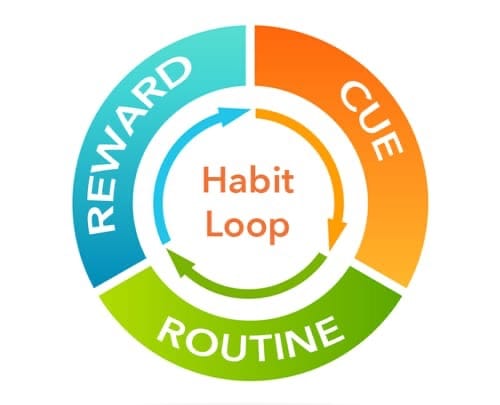Let's say you have someone who's "doing the right thing". Investing a little bit out of every paycheck, whether it's a 401(k) or a non-retirement account. Doesn't matter. The key point is they take some portion of their paycheck and set it aside for the future.
The market is volatile. And we know that.
So market volatility means the market goes up and down. Seemingly at random.
Imagine what it feels like to someone who is forcing themselves to invest, when they put aside money twice a month and have less at the end of the month than they did at the start.
Even if they don't have less, but if they added $200 over the course of the month, but they only have $150 more than they started... doubt seeps in.
It just doesn't feel good, even though we all know that doing this over a long period of time pays off and it's the nature of the beast that things go up and down.
One of my least favorite financial-isms is when people say "just don't look". I mean, they're telling you to ignore your life savings and just invest blindly! That doesn't make sense to me.
What can we do to feel better about investing regularly, knowing that the total balance in the account is going to fluctuate?
I mean, I've kinda put the answer in the question... do you see it? Before we get to it, let's talk briefly about the science of habit formation.
Habit formation
How do habits form?

There's a simple model for habit formation called the habit loop, and it contains 3 pieces:
- The cue
- The routine (the habit)
- The reward
In our case, the cue is getting your paycheck. The habit is setting some of it aside for long term wealth building.
But what about the reward?
If the reward is having less money than you started the month with... how do you think that'll make you feel about the habit? Badly, that's right. And if you feel badly about the activity, the cue will not "take" and trigger the routine. You'll find excuses, something else to do with your money other than investing.
However, and this is key...
it's totally natural that your total balance fluctuates. The problem is it goes against habit formation science. It's demotivating and works against building long-term wealth.
There's a simple answer. As I mentioned above, I put it in the question, which I'll repeat here... if measuring your portfolio value is demotivating of a long-term investing plan, what should you do? That's right. Measure something else!
But what?
Measure your paycheck instead of your pile
The challenge is that brokerage statements aren't designed to measure much else. In my financial fable "A Crack in the Matrix" (that over 22,000 people have read!) I share sample financial statements where the objective is income and yet still the numbers highlighted are portfolio value. For whatever reason, no one wants to focus on anything else.
Here's a simple answer:
You focus on the paycheck instead of the size of your pile of money saved.
Investing in dividend stocks, each time you add to your investment, your dividend paycheck will go up. Your total portfolio value will fluctuate up and down, but your paycheck remains steady (except of course, if a company cuts their dividend... and to minimize that likelyhood I recommend starting with the Dividend Aristocrats).
Now, each time you put a little bit of money into your portfolio, you can track a number that goes up - the total dividends paid by your portfolio (what I like to call your dividend paycheck).
And, it doesn't only go up when you add money. Each time you get a dividend and reinvest it, your paycheck goes up. Each time a company you hold raises their dividend, your paycheck goes up.
It's not the only metric you should track, but for those starting out and trying to stay motivated to build a new habit, this is a way to stay motivated over the short-term as you watch your portfolio grow over the long term.


